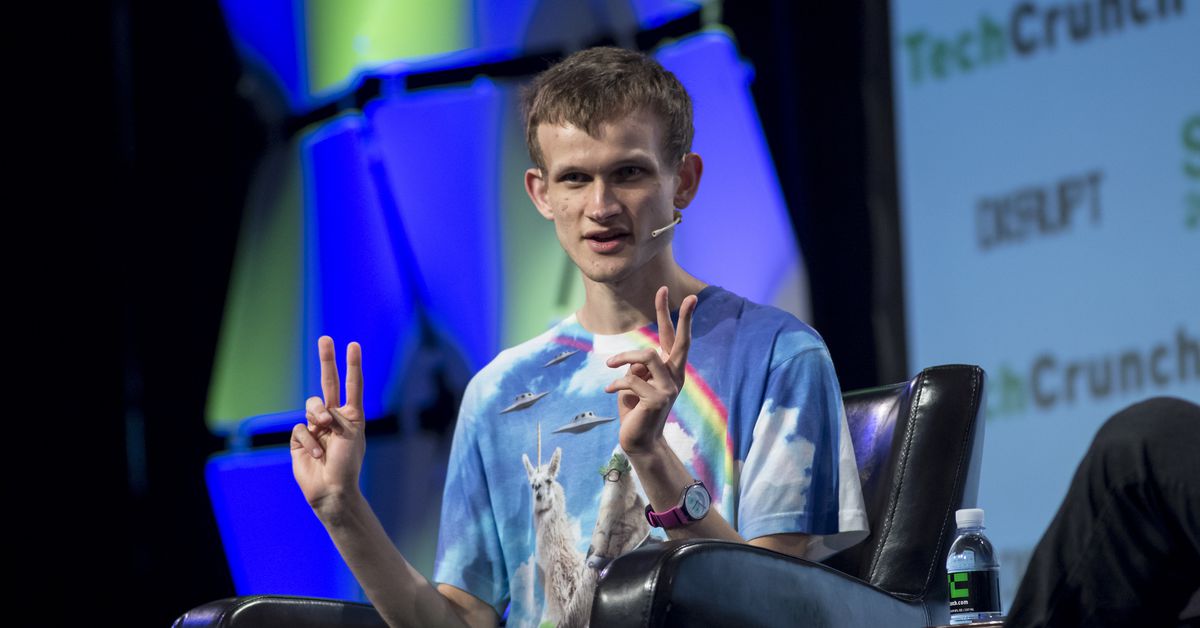
A cryptocurrency billionaire seems to have made one of the largest contributions to save lives in India from the coronavirus pandemic: Over $1 billion.
But as there so often is in the world of cryptocurrency, there is a massive catch. And it’s a catch that over the next few years will likely come up again and again and again as crypto billionaires ascend to become major players in the world of philanthropy.
Here’s what happened: Vitalik Buterin, the 27-year-old programmer who founded the cryptocurrency Ethereum, disclosed on Wednesday that he had contributed about $1.5 billion worth of coins to nonprofit organizations, some of which came in his own (and relatively stable) Ether.
But $1 billion of that came in a donation of a more … unusual type. He donated it in the form of a meme digital currency called Shiba Inu coin — yes, after the dog breed — that Buterin was gifted for free. (Like the popular Dogecoin, which also features the dog as its mascot, the Shiba Inu coin has much hype but questionable underlying value.) But then, as is prone to happen in the topsy-turvy world of meme assets, Shiba coin proceeded to tank in value immediately after Buterin’s donation was disclosed — perhaps because buyers and sellers expected the billionaire to soon liquidate his holdings.
The saga highlights just how uncharted the territory is in the world of crypto philanthropy — and perhaps the need to come up with a new vocabulary to describe these donations altogether. Should the donation of a meme cryptocurrency be considered equivalent to the donation of a publicly listed stock? What is a “real” donation, what deserves an asterisk, and who gets to make that call? And how can billionaires protect the value of their crypto donations — while also making sure that nonprofits can actually use their money?
That all matters because there is a new generation of philanthropists who have built massive fortunes in not just traditional cryptocurrencies like bitcoin and but also in more out-there coins like those inspired by Dogecoin, the meme digital asset pumped up by Elon Musk. Nonprofits want to welcome these donors but need to figure out how to handle assets that can tank in value overnight.
What happened with Buterin is instructive. Some of his contributions on Wednesday came in Ether, the highly traded cryptocurrency and relatively older coin that he founded back in 2015. $50 million worth of Ether went to GiveWell, for instance, an intermediary that dispenses money to nonprofits that are proven to be the most effective based on rigorous data analysis. The price of Ether was relatively stable after his donation.
But most of the headline value of the donation — and possibly also the tax write-off that comes with it, depending on how the gift was structured — came from the memecoin, not Ether. Buterin was given about 50 percent last year of the total supply of the coin, which is meant as an imitator to Dogecoin. But as soon as Buterin’s donation became public, the value of the coin plummeted about 40 percent.
That meant that the nonprofit, the India Covid-Crypto Relief, suddenly had less money on its hands than it did when Buterin made the donation just moments before. And because of concerns that it could drop even further, the nonprofit’s head had to put out word that they would “act responsibly” to not hurt the price of the Shiba coin. That might mean not selling large chunks of the currency at once to covert into cash and tangible Covid-19 aid.
That sensitivity could mean less liquid money for the relief fund to help India weather the humanitarian crisis that is gripping the country. The country is suffering from an oxygen shortage and is the world’s most troubling hot spot during this phase of the pandemic, with over 4,000 reported deaths some days.
To be sure, this is hardly the first time that a billionaire has made donations in difficult-to-liquidate assets — whether it is rare art or stock in public companies that are held by current C-suite executives. But the rise of cryptocurrencies in the last few years has posed unique accounting and logistical challenges to institutions like the Silicon Valley Community Foundation, a favorite philanthropy of the tech billionaire class.
But it’s clear that this problem, so to speak, is only going to get worse. While many mature nonprofits today are comfortable accepting a digital asset like bitcoin, what new, volatile coins will the ingenious billionaire set seek to donate in the future? And this is increasingly not a fringe hypothetical, given that crypto billionaires are all over the list of the wealthiest people in the world.
There is real money on the line, whether the donations come in bitcoin or Shiba coin. And the world will have to adapt to these crypto billionaires if it wants to see their riches put to good use.
source https://www.vox.com/recode/2021/5/12/22433113/vitalik-buterlin-cryptocurrency-india-shiba-inu-coin-philanthropy

Post a Comment